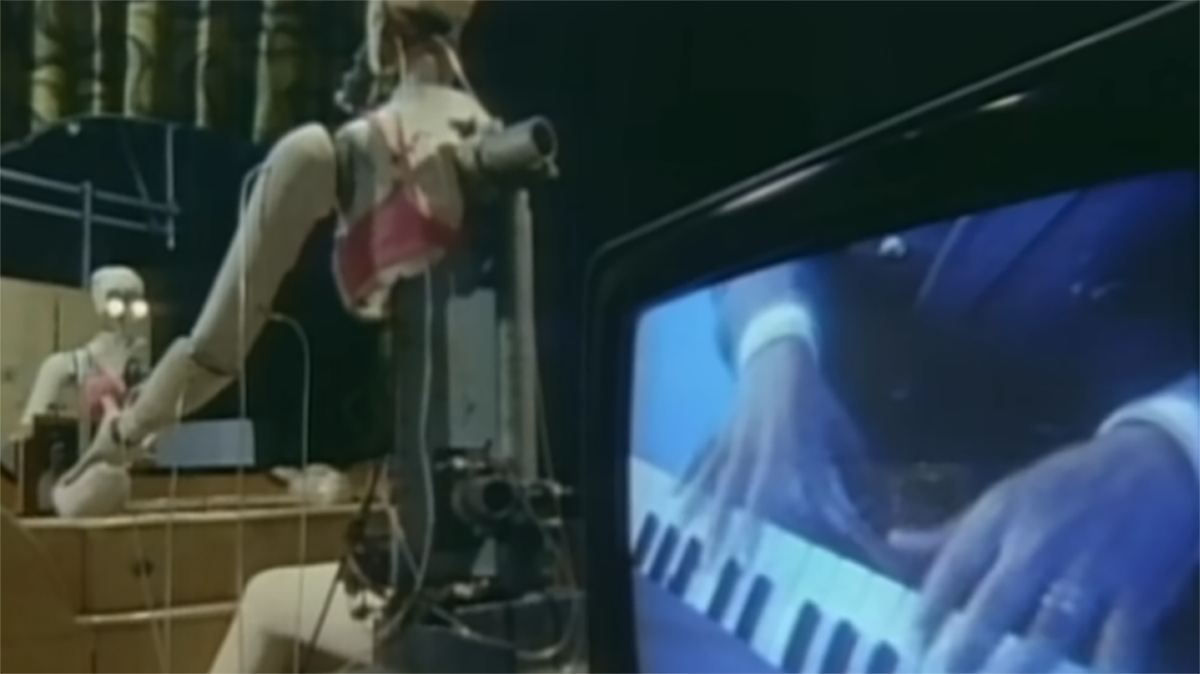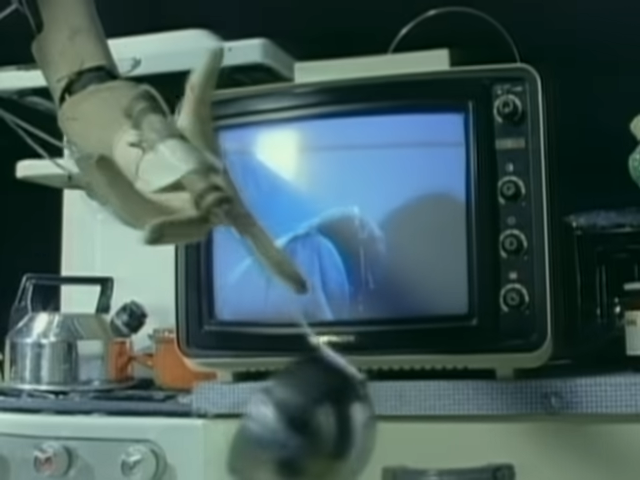By Keith Walsh
Just shy of 40 years ago, in July of 1983, Herbie Hancock released his radically unique single “Rockit,” from the album Future Shock. Presented in a strange video featuring disturbing mechanical figures, the song went on to win a Grammy for best R&B Instrumental Performance, as well as five MTV Video Awards.
Initial recordings for “Rockit” were done at Martin Bisi’s BC Studio in New York. The tune was written by Hancock, bassist Bill Laswell and keyboardist Michael Beinhorn, the latter two a duo called Material working out of BC. I spoke with Bisi, whose studio was initially supported by Brian Eno and was known for creating no wave and experimental music, about the formation of the tune.
After Hancock’s manager recruited Laswell, Beinhorn got together with he and Bisi in the studio. Bisi tells me: “Material generally recorded that song — Bill Laswell and Michael Beinhorn. Those are the two members of Material that were more like the producers. I was more like the engineer, You could argue that there’s overlap and I think there was overlap, like I came up with stuff but really the producers were Michael Beinhorn and Bill Laswell.”
The syncopated acoustic drums were recorded in an interesting way, Bisi tells me. “That’s Daniel Ponce and he was playing a Yoruba instrument, which is like it’s an instrument between three instruments and normally played by three people but he played each instrument himself because they’re different sizes. There’s a small bata medium bata a large bata – and he played them all.”
The tapes from the “Rockit” sessions were taken to Los Angeles where Hancock completed them. “Bill Laswell took the tapes to, to L.A,” Bisi said, “where they just worked on the tracks. Herbie did the keyboard, Herbie added other sounds, and replaced a few sounds right? Then the tapes came back to New York and Bill had them mixed at RPM.”
Lots of changes were added in Los Angeles. In addition to scratching turntable sounds by D.ST (Derek Showard), the soundbite “Rock It, Don’t Stop It” was sampled from the tune “Planet Rock” by Afrika Bambaataa And The Soul Sonic Force. The music of D.ST and Bambaataa was researched in a New York club by Hancock and Laswell early on in the songwriting process. (Cited from “How Herbie Hancock Crafted a Hip-Hop Classic,” in Cuepoint, by Fernando S. U. Jr, 2015.)
Bisi told me that he never met Hancock during the process. ““So I never met Herbie,” he said. “So we finished the song, we finished the song except for a couple elements…But there’s countless things on that, that that I can point to that was done here in Brooklyn, New York and Gowanus.”
Bisi continues, telling me about the rest of the album, Future Shock. “My opinion is that it wasn’t crystal clear that we were going to work on the entire record. It’s just that everyone was so thrilled with “Rockit,”that then we started doing more of the record. The approach is kind of different on the rest of the record.”
In November, Martin Bisi released his dramatic experimental album, Feral Myths, featuring traditional and electronic instruments, and packed with stellar performances.
Martin Bisi On Bandcamp
Martin Bisi dot com
BC Studio
Martin Bisi at PunkRockBeat dot com
Martin Bisi at Popular Culture Beat dot com
The History Of BC Studio
finis

